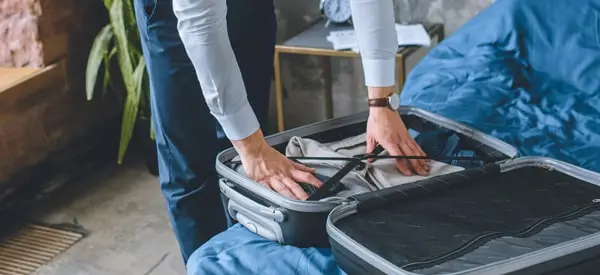Inpatient rehab is an important step in the recovery process for many dealing with addiction. While this treatment program can provide the necessary tools and resources to maintain sobriety in the long term, it’s important that you come prepared.
Taking time to research inpatient treatment facilities in your area, becoming familiar with what to expect during your stay, and understanding the cost of treatment are essential steps in ensuring a successful stay in a rehab program. This guide will help you navigate the process of preparing for inpatient rehab so that you can focus on getting better.
Understanding the Inpatient Rehab Process
First and foremost, you should be aware of what type of inpatient program will best suit your needs. There are several different types to choose from, such as residential treatment, in-house care, and partial hospitalization programs (PHP). Depending on your unique situation, one of these may be more beneficial than another.
Next, it’s important that you have a clear understanding of what to expect during inpatient rehab. Generally speaking, inpatient programs consist of group therapy sessions, substance abuse therapy, and individual counseling sessions with a therapist or counselor who specializes in addiction recovery.
In some cases, medication-assisted treatment (MAT) may also be included in your inpatient rehab program. Finally, inpatient rehab programs typically also provide educational classes and activities to help you in your recovery process.
Learn About Renewal Lodge’s Inpatient Rehab Today!
Research Inpatient Rehab Facilities
Once you’ve determined the type of inpatient program that is right for you, it’s time to begin researching inpatient rehab facilities in your area. Taking the time to research can help ensure that the one you choose has the resources and supportive environment needed during your stay in order to facilitate a successful recovery journey.
Be sure to look into things like staff experience and qualifications, drug and alcohol abuse treatment plan options, any financial obligations, aftercare services offered, as well as reviews from past patients. This can be an invaluable resource in choosing the best inpatient facility for your needs.
Preparing Your Mind and Body for Inpatient Rehab

Inpatient rehab is a challenging process that requires immense dedication in order to achieve success. As such, it’s important to take steps in preparing your mind and body for the inpatient rehab experience. While this can seem daunting at first, various techniques can help you when preparing for rehab.
Mentally, it’s essential to have realistic expectations about inpatient rehab to ensure a positive outcome. Make sure you have clear goals in mind during your stay in order to stay focused on the end game – recovery from addiction. It’s also important to remember that relapse is a common part of recovery, so don’t be too hard on yourself if you fall back into old habits or feel overwhelmed.
Physically, it’s important to take steps in preparing your body for inpatient rehab. This may include getting enough rest in the days leading up to inpatient treatment, eating nutritious meals, and drinking plenty of water. You should also consider exercising regularly to maintain a healthier lifestyle during inpatient care. Taking these measures in preparing your mind and body can help ensure that you are physically and mentally prepared for the challenges ahead in inpatient addiction rehab.
Take Care of Professional and Family Obligations
Before entering inpatient rehab for addiction, it’s important to take care of any professional or family obligations that you may have. If you are employed, check in with your employer about taking the time off, such as medical leave, for inpatient rehab and confirm the exact dates you will need to plan accordingly. You should also let your employer know that you are in inpatient treatment so they can be aware of potential issues associated with this process.
Additionally, if you have children or other family members who depend on you, try to make arrangements in advance in order to ensure their needs are taken care of while you are away. Taking steps to address these types of responsibilities before entering inpatient rehab can help minimize stress and provide peace of mind during this challenging time in your life.
What to Pack: Only the Essentials

When heading into inpatient rehab for addiction, it’s important to know what to pack in order to make your stay as comfortable and successful as possible. Here are the essentials that you should consider bringing with you:
- Comfortable clothes and sleepwear
- Toiletries (including shampoo, soap, toothpaste, etc.)
- Any medications that you take regularly
- A pair of sneakers or other supportive shoes
- A journal in which you can write down your thoughts and progress during inpatient rehab
It’s also a good idea to bring any items that evoke positive memories such as photographs or meaningful mementos in order to provide yourself with comfort while in inpatient care.
What Not to Bring
When going into inpatient rehab for addiction, it’s important to know what not to bring in order to avoid any complications that could arise during your stay. Here are a few things you should leave at home:
- Alcohol and drugs
- Weapons of any kind
- Expensive jewelry or other items of value
- Any type of illegal substance or paraphernalia
- Overly revealing clothing (such as bikinis, tank tops, etc.)
It’s also important to note that inpatient facilities may have their own regulations in place about what you can and cannot bring while in treatment. Be sure to check beforehand to ensure compliance during your stay.
Spend Time with Loved Ones Before Going to an Inpatient Rehab Facility

Before entering an inpatient rehab center for addiction, it’s important to take the time to spend with your loved ones in order to ensure that you have a strong emotional and mental connection. This can be especially helpful in providing comfort and support during inpatient care as it will help remind you of why you are doing this in the first place – recovery from addiction.
Take the time to enjoy meals together, go on walks, or just sit and talk about life before entering an inpatient drug rehab center. These types of activities can provide an outlet for stress relief and allow you to build meaningful relationships in order to stay positive throughout your journey toward sobriety. Having these connections in place before going into inpatient drug rehab can provide invaluable emotional strength in order to make the process as successful as possible.
Keep a Journal
Keeping a journal during inpatient rehab for addiction can be an incredibly helpful tool in your recovery journey. Writing down thoughts and feelings in a private space can help provide clarity in any confusing or difficult moments as well as provide motivation in order to stay on track.
It’s also important to note that inpatient treatment centers often have activities in which you can participate in order to learn more about yourself and the causes of your addiction. Taking notes and writing reflections in a journal during these types of sessions can help reinforce what you are learning while in treatment, allowing you to better incorporate it into your life after leaving inpatient care.
In addition to providing clarity, keeping a journal can also serve as an outlet for expressing your feelings in a safe and healthy way. Writing down physical and emotional struggles in moments of struggle can provide relief in order to allow yourself the space in which you need in order to recover from addiction. By taking this time for self-reflection, your journal can serve as an invaluable resource in understanding yourself on a deeper level while in inpatient rehab.
Overall, having a journal during your stay at inpatient rehab for addiction is important to document your journey, reflect on past experiences, and provide clarity when needed. With these tools available, you’ll be able to use what you learn throughout treatment to best equip yourself with the knowledge necessary for recovery after leaving inpatient care.
Inpatient Rehab at Renewal Lodge
At Renewal Lodge, we strive to create an atmosphere in which individuals feel safe, supported, and empowered in their recovery journey. With our individualized treatment plan that caters to each patient’s specific needs, clients can leave inpatient care feeling confident and ready to tackle the challenges of life without drugs or alcohol.
If you or a loved one are in need of entering a treatment facility, remember to plan ahead in order to make the most out of your stay. Bring items that will provide comfort and support as well as leave time for meaningful connections with loved ones in order to better equip yourself in recovery.




